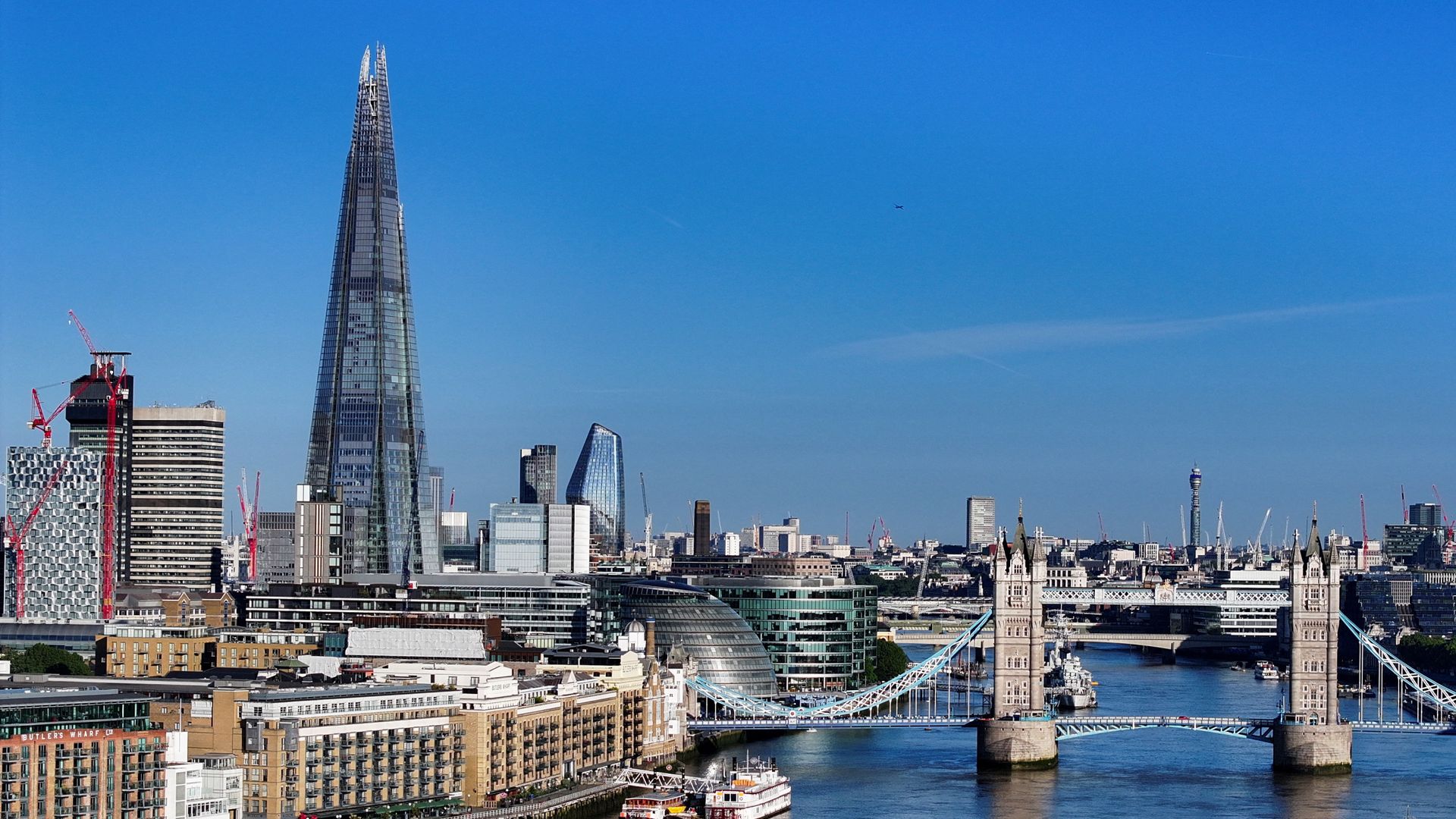
Frantzdy Jerome, a Haitian immigrant in central Ohio, received shout-out after shout-out for his work at an Amazon warehouse he joined last year.
In March, his manager commended him in a message for his “reliability, hard work and dedication to our team.”
“Thank you for your flexibility and picking up the extra shifts,” read another message, on June 7.
Two weeks later, Mr. Jerome, 35, lost his job. His work authorization was revoked in late June after the Trump administration ended a Biden-era program that allowed him to live and work legally in the United States. Hundreds of others at the same Amazon building in West Jefferson, which employs more than 3,700 people, also lost their jobs.
They are among thousands of foreign workers across the country who have been swept up in a quiet purge, pushed out of jobs in places where their labor was in high demand and at times won high praise. While raids to nab undocumented workers in fields and Home Depot parking lots have grabbed attention, the job dismissals at the Amazon warehouse are part of the Trump administration’s effort to thin the ranks of immigrants who had legal authorization to work.
“This is not unique to Amazon,” said Viles Dorsainvil, a Haitian community leader in nearby Springfield. He is aware of more than 100 Haitians with work authorizations who are now out of work in the area, he said, with the terminations reducing work forces in warehouses, auto-parts plants and stores.
Such dismissals are happening at many of Amazon’s more than 1,000 facilities around the country, including in Massachusetts and the warehouse in Staten Island that fills orders for millions of New Yorkers. At one fulfillment center in Florida, hundreds were let go, a person familiar with the site said.
The timing of the dismissals is tricky for Amazon, just before its Prime Day deals, an event that now stretches over four days in July. The deals typically drive a spike in customer orders — and overtime demands — rivaled only by the holiday shopping season.
During that rush before Christmas, Haitians would emerge in threes and fours from cars that filed into the huge lot outside the West Jefferson fulfillment center to start their shifts. But “if you go to the parking lot now,” said Sadrac Delva, a Haitian asylum seeker who continues to work at the center, “you will notice a huge difference.”
Amazon said it had prepared for the policy change, adjusting staffing plans and awaiting formal guidance from the government, which finally came last month.
“We’re supporting employees impacted by the government’s recent changes in immigration policy,” Richard Rocha, an Amazon spokesman, said in a statement. The company has pointed workers to various resources, including outside free or low-cost legal services.
Amazon opened the West Jefferson facility in early 2020, just before the pandemic supercharged demand for deliveries and sent the company on a hiring spree with little precedent. To fuel its march to becoming the country’s second-largest private employer, behind Walmart, Amazon tapped into the family and cultural networks of immigrant communities. In some warehouses, it provides information in multiple languages, including Spanish, Vietnamese and Haitian Creole.
In Madison County, Ohio, where the hulking West Jefferson warehouse sits, the unemployment rate has hovered around 4 percent for much of the past decade. David Kell, the county’s director of economic development, said in an interview last year that companies once starved of workers had come to rely on Haitians and other foreigners.
Refugees from Afghanistan, Bhutan and Somalia who have been resettled in the area also work at the warehouse. But Haitians are the biggest share of foreign workers, and possibly outnumber Americans, according to workers and local officials.
The dismissals came with remarkable speed. On May 30, the Supreme Court granted temporary approval for the Trump administration to revoke a program known as “humanitarian parole,” which had allowed more than 500,000 migrants feeling political turmoil in Cuba, Haiti, Nicaragua and Venezuela to quickly get work permits if they had a fiscal sponsor.
The move to terminate the parole status was part of the Trump administration’s effort to roll back discretionary immigration programs established by the Biden administration and to fulfill Mr. Trump’s aim of mass deportations.
On June 12, the Department of Homeland Security said it had begun notifying enrollees that the program was ending, saying the immigrants had been poorly vetted and undercut American workers.
Ending the program “will be a necessary return to common-sense policies, a return to public safety and a return to America First,” a department spokeswoman, Tricia McLaughlin, said in statement announcing the change.
On June 22, Amazon told managers around the country in an email, which was obtained by The New York Times, that it had “received the first list from D.H.S. identifying impacted Amazon employees” from the parole program, as well as “some employees outside of this specific program whose work authorization is similarly affected.”
Amazon let the managers know that the next day, the affected workers would receive push notifications in the employee app about the change. Unless the workers could provide alternate work authorization documents in the next five days, they would be suspended without pay and ultimately dismissed.

The notification began popping up on the mobile phones of employees, including Mr. Jerome. “The Department of Homeland Security (D.H.S.) has informed us that the work authorization that you had submitted is no longer valid,” it read.
Workers began posting questions on social media and internal message boards at Amazon warehouses across the country.
“Change is never easy, and I know this news may be difficult for many of you,” Amazon’s internal talking points advised managers to tell their workers at the start of the next shifts.
This result is precisely what Mr. Jerome had feared. He came to the United States with his partner and young daughter last year, and quickly obtained a work permit. He told The Times in December that he had sleepless nights worrying what the new administration would bring.
The family had made its way to Ohio, drawn by plentiful jobs and affordable living. In recent years, thousands of Haitians had settled in towns like Springfield, filling openings that helped boost the local economy.
Amazon has been a life raft for many immigrants with work authorization. It hires regularly, in part to replenish its ranks because of high turnover. It has solid benefits, and the pay — about $22 an hour in West Jefferson — is promising for migrants with limited English.
Within weeks of arriving in Ohio, Mr. Jerome was hired at Amazon, packing and stowing boxes on the overnight shift. His partner eventually began working days there. Their combined income covered the $953 in monthly rent, plus bills and food — and left enough to send money to family in Haiti.
Mr. Jerome took every overtime shift he could get, even when it was not mandatory, to make extra money.
“My manager liked me because I am a fast, good worker,” he said.
He said he felt fortunate to work at Amazon and had learned new skills. Three months ago, he started repairing robots. He planned to take advantage of a program that covers tuition for employees in good standing, training as an electrician at a vocational school.
Mr. Jerome had hoped to be spared from being cut, since he has applied for asylum. Under current rules, those with an active claim are eligible for a work permit 150 days after filing. He is about to hit the 150-day mark, but is unclear whether he will receive one, given that the Trump administration has slowed down issuing the permits.
“I am very, very worried,” said Mr. Jerome, who supports 10 people, including parents, siblings and nephews in Haiti. “This morning my dad told me they don’t have enough to eat.”
His partner remains employed by Amazon, thanks to a different program known as Temporary Protected Status. But the Trump administration has announced that it will end that program for Haitians, too, though a federal court has temporarily blocked the move.
“We don’t know what awaits us,” Mr. Jerome said. “I don’t know what I’m going to do.”









-3.png)



